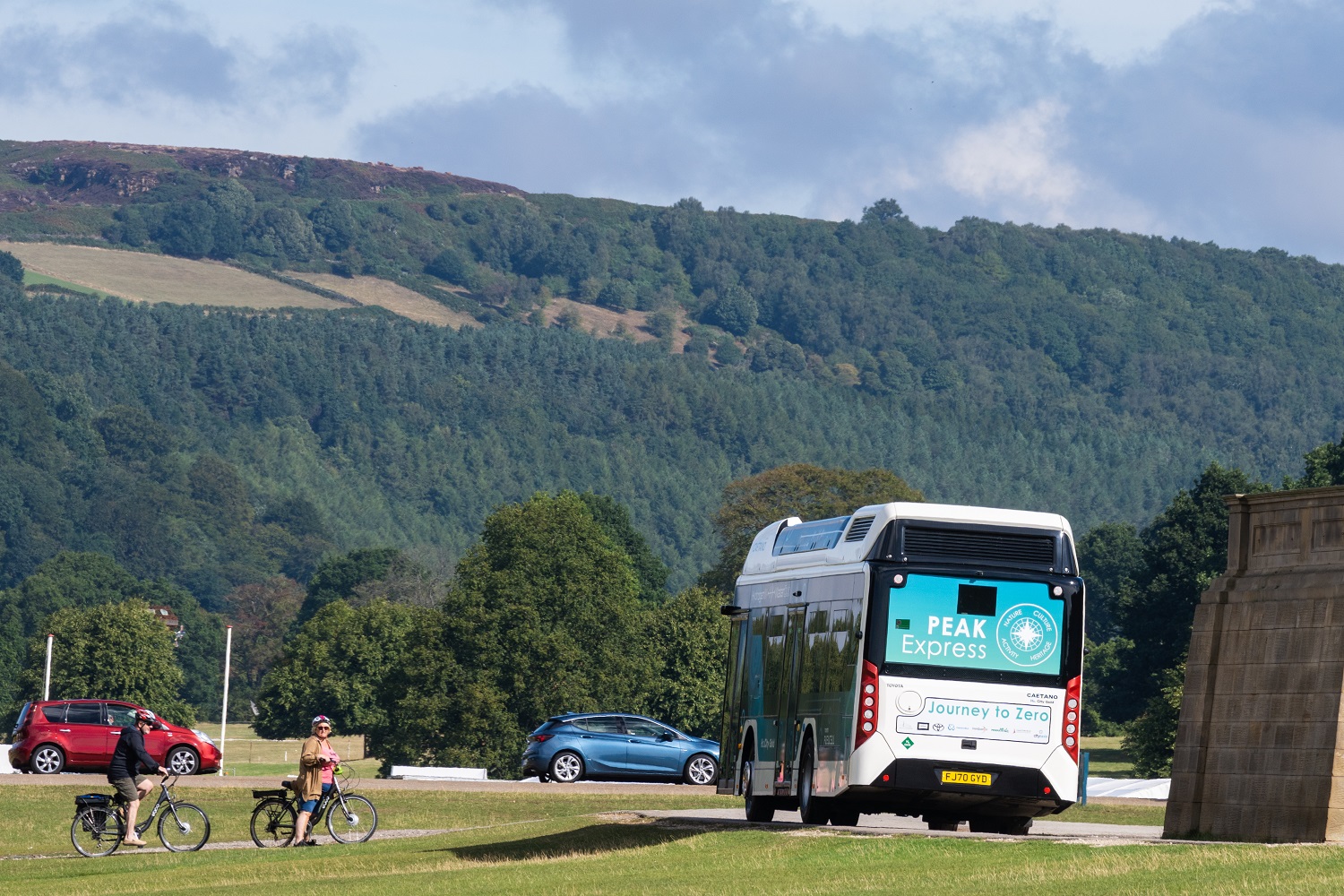Undulating roads affect hydrogen/battery-electric trial
A trial has shown the regenerative effect of undulating roads on hydrogen- and battery electric-powered buses.
Results are now in of the trial of two Caetano buses, one hydrogen- and the other battery-electric-powered, that took place in the Peak District National Park last year. During the test, the rolling hills were observed to have a regenerative affect on the buses. For example, the hydrogen fuel-cell electric vehicle (FCEV) regenerated almost half of its fuel use through its braking system.
“The iconic, long undulating terrain of the Peaks means electric battery life can be optimised better than in stop-start urban landscapes” – Jon Hunt, alternative fuels manager at Toyota (owners of Caetano)
Jon Hunt, alternative fuels manager at Toyota (owners of Caetano), said: “The iconic, long undulating terrain of the Peaks means electric battery life can be optimised better than in stop-start urban landscapes.
“Balancing the availability of charging points, timetabling, optimising journey times, availability of hydrogen and commercial requirements is likely to point to different zero-carbon solutions in every national park for services like this.”

World first
The trial is aimed at creating a zero-emission, car-free, ‘Gateway’ mobility offer. The PEAK Express is envisioned to offer visitors to the Park a hop-on, hop-off service. Based initially at the PEAK Gateway, a regenerative enterprise and visitor destination planned just outside of Chesterfield, the PEAK Express combines parking, accommodation and services with zero-emission vehicles to explore the National Park. It is planned to operate beyond the congested ‘honey spots’, which should open access to more experiences and attractions without the need for car parking.
The two-week trial concluded in the first week in September last year and was carried out by a group of industry partners working with Peak Gateway Properties. In what is believed to be a world first, it saw the two buses operated concurrently on the same route, at the same times and with the same loads. trentbarton operated the buses on a route covering the Gateway site itself, Chatsworth House, Longshaw, the Hassop Station/Monsal Trail and Chesterfield town centre and train station. A mobile hydrogen re-fueller was provided by Air Products.
Between the EV and hydrogen bus, 1,244km were covered during the trial. The hydrogen bus drove 745km and used 589kWh, with 251kWh energy regenerated through the braking system. It consumed 32kg of hydrogen during the trial, an average of 43g per km (Consumption is higher when carrying passengers). The vehicle is 0.5m taller than a ‘standard’ single-decker, with some height restricted bridges noted during the trial.
The electric Caetano drove 500km and used 483kWh (a fault resulted in the failure to record the energy regenerated). On average the EV bus travelled 2.83km for every 1% of battery charge consumed. On average the EV used 0.97kWh per kilometre travelled.
Other key results from the trial are:
- The hydrogen bus used 589kWh of energy and generated 251kWh of energy through its braking system.
- 185tonnes CO2 was saved vs fossil fuels during the trial – the equivalent weight of a Toyota Yaris.
- The CO2 saving per mile was 1.6kg, based on the trial data when comparing EV/FCEV to equivalent diesel buses.
A second trial, engaging a broader national customer base, is being planned for summer 2023. The PEAK Express partners are currently considering a range of operators for the trial and the longer-term service.